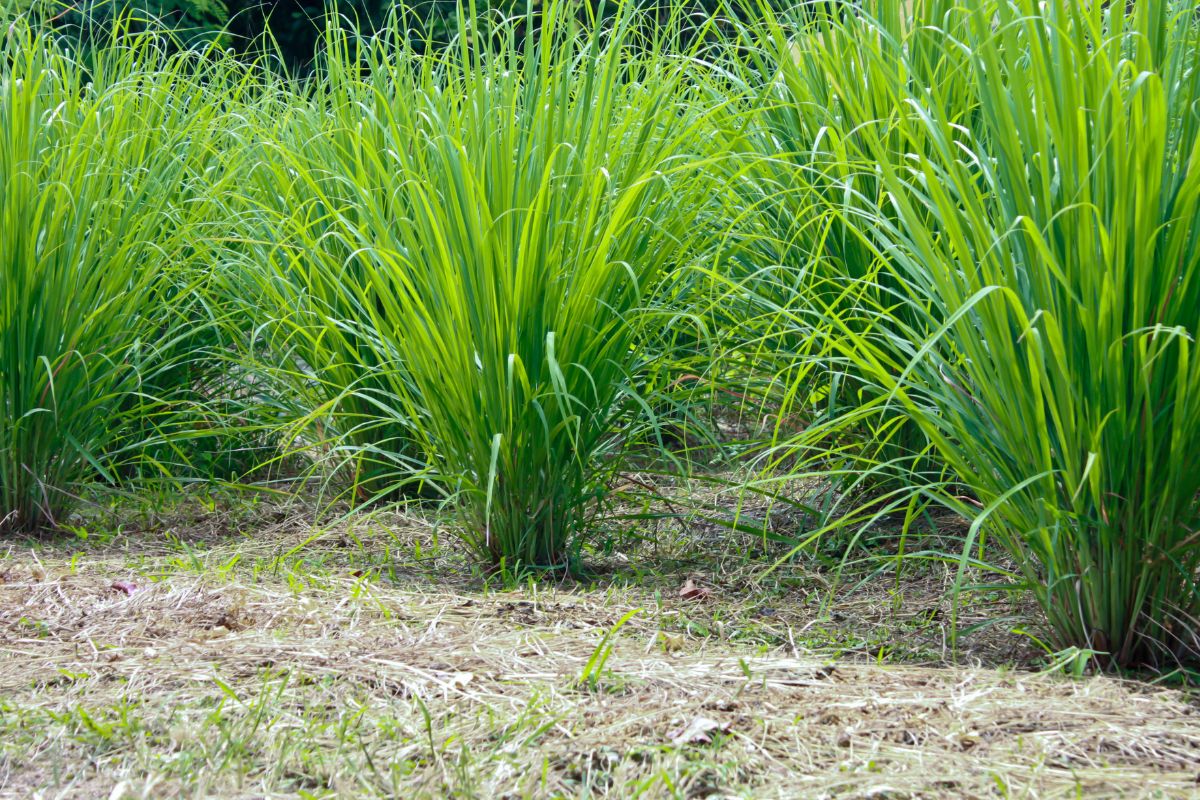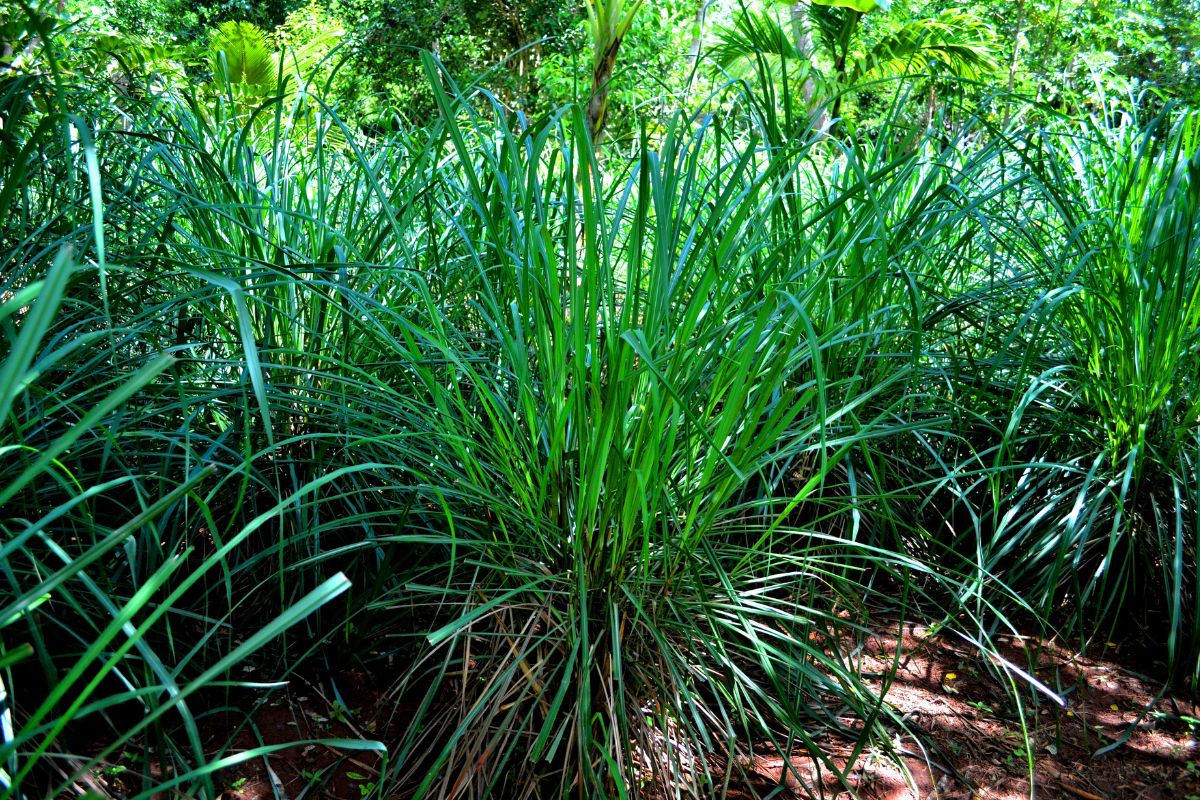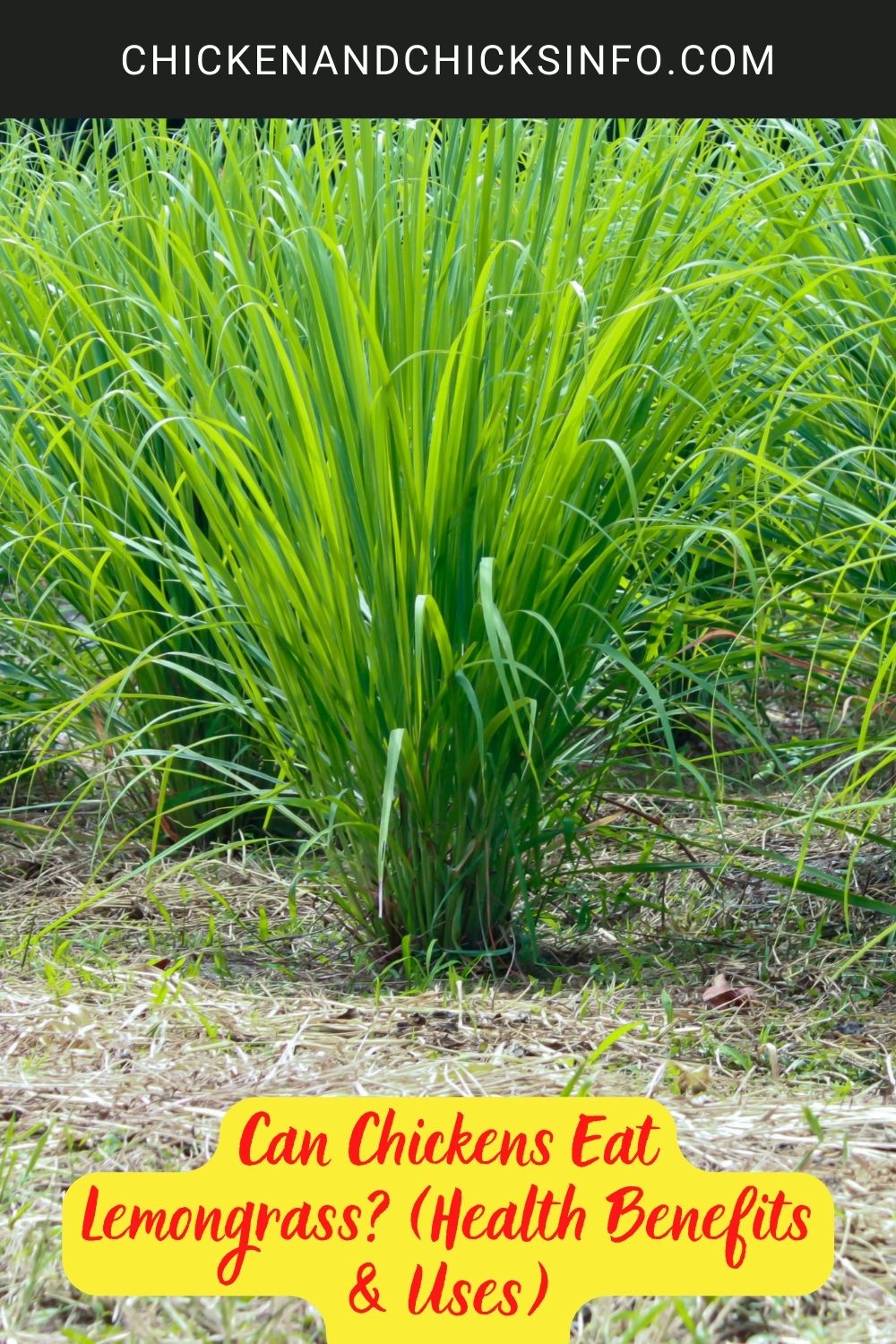
Chickens can and will eat lemongrass, and it’s fine in small amounts. Whether you’re trying to grow it, or you want to know if you can feed it to your hens - they’ll eat it either way. There are some awesome health benefits to eating lemongrass too, as I’ll explain.
Jump to:
Health Benefits of Lemongrass for Chickens
Lemongrass is a medicinal plant. The leaves and oils made from the plant are used to make various medicines.
According to WebMD, the properties in lemongrass can help with a long line of health issues, such as swelling, digestive issues, cramps, fever, colds, and more.
The main benefit of growing and using lemongrass for most people, however, is as a natural pest repellent.
Lemongrass contains a compound called citronella, which is often found in insect-repelling products.
I know some backyard chicken owners that feed it to their chickens and say it’s good for their general health as it’s rich in nutrients and antioxidants.
But most people I know use it as a pest-repellent. Either by growing it in their garden and protecting it from their flock, or sprinkling dried lemongrass in their nesting boxes, bedding and anywhere else parasites might be annoying your hens.
I’ve also read some owners say they find it to be a laying stimulant. I can’t find any concrete evidence to back this up, but a lot of herbs are known to promote healthier egg-laying so it’s certainly possible.
How To Feed/Use Lemongrass With Chickens

When it comes to feeding chickens, it’s pretty straightforward. They will either eat it, or they will turn their beaks up and ignore it.
For the most part, chickens will eat just about anything that’s edible though.
If you want to grow lemongrass, I recommend it. I’m pretty bad when it comes to growing and keeping plants alive, but even I’ve managed to grow lemongrass over the years so it must be easy.
I wouldn’t let your flock loose around the plants though. They’re more likely to scratch and dig up all around the plant and damage it than they are eating it in moderation like good chicks.
You’re better off chopping up the long strands and adding it to their feed or using it in their coop in small amounts.
Other Herbs and Spices That Are Great for Chickens
Lemongrass is just one of many plants, herbs, and spices that possess medicinal and wellness benefits for chickens.
Feeding chickens natural plants is something I always recommend looking into in more detail. It’s an in-depth topic, but to help get you started, here are some of the more popular herbs and spices that are popular in the backyard chicken community:
Mint
I love mint, is there a more iconic and wonderful smelling herb? That fresh, minty aroma does a lot more than please the senses, too.
Mint is a powerful herb rich in a wide range of minerals and vitamins. It’s good for the immune system, aids digestion, and importantly for chickens, can help alleviate respiratory issues.
Contrary to popular belief, it doesn’t help cool chickens (or us) by lowering our temperature. Menthol just confuses our senses into thinking we’re cooler. Still, it’s a pleasant taste, so I’m not complaining.
Lavender

Lavender is another great smelling herb with a range of awesome health benefits and uses.
It’s been used for thousands of years for its antiseptic and anti-inflammatory properties. It’s also one of the best herbs for creating a relaxing environment (and for helping me sleep!)
I usually scatter some dried lavender in my hen’s nesting boxes and around their coop when I can get my hands on some. Freshen the place up while repelling little pests and parasites.
Thyme
Another herb that will aid respiratory issues while also providing a good range of nutrition is thyme.
It’s also a good pest repellent. The active ingredient in thyme called thymol is commonly used in pesticides for this reason.
You can either feed it to your chickens or scatter it around their coop. Either way, it’s health benefits all around.
Cinnamon
While mint is a summer herb, cinnamon is definitely a nice winter warming spice. Personally, I can’t get enough of the aroma and taste of cinnamon, so I’ll use any excuse to open the jar.
Like all spices, there’s more to cinnamon than the alluring aroma. Among other things, it contains natural antibacterial and anti-inflammatory properties and is an expectorant.
Meaning, it’s great for the health of your chickens. No need to share your cinnamon buns, just add a teaspoon to their feed.
I usually just add about a teaspoon to their feed once a day throughout the winter. Cinnamon is an expectorant, it has natural antibacterial and anti-inflammatory properties.
Ginger
As one of the healthiest spices on the planet (Healthline’s words not mine), you should spare some ginger for your chickens next time you’re using it in the kitchen.
Not only does it do a lot of the same things as the aforementioned herbs and spices, but studies have also shown that adding a little ginger to a chicken’s diet can improve the nutritional content of their eggs.
In Summary
I’m a big fan of feeding chickens natural substances that offer health benefits like herbs and spices - as you can probably tell.
Lemongrass is one of the best herbs to grow. It smells great, will repel pests and even small rodents, and has some decent nutritional benefits when eaten by your hens.





